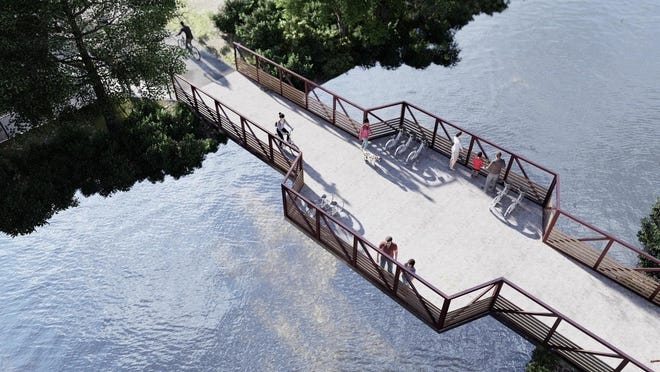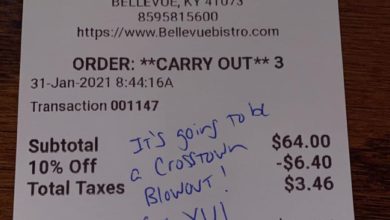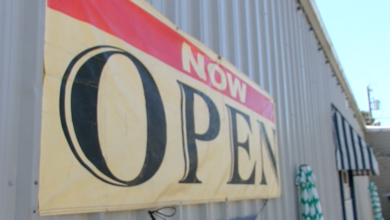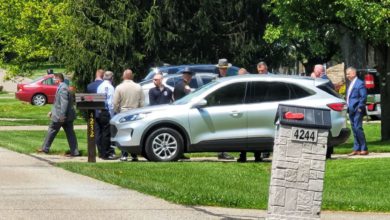The U.S. on Friday reported administering its 100 millionth COVID-19 vaccine as the World Health Organization reported 300 million global shots have been given.
About 1 in 4 U.S. adults have received at least one shot, and about 1 in 10 is fully vaccinated, according to data from the U.S. Centers for Disease Control and Prevention. An average of 2.2 million doses are being administered per day, up from about 1 million doses a day in mid-January.
Ramping up vaccinations is key to President Joe Biden's goal of friends and families being able to join together in small groups for Fourth of July celebrations. "July 4th with your loved ones is the goal," Biden said Thursday, stressing that "a lot can happen. Conditions can change."
White House officials said Friday the federal government will focus on ramping up the number of vaccinators and the number of locations where vaccines are available after Biden's announcement this week that all Americans will be eligible for a vaccine by May 1.
Over the coming weeks, the federal government will increase the number of community health centers in the federal vaccine program, double the number of pharmacies and double the number of federal mass vaccination sites, White House COVID-19 Response Coordinator Jeff Zients said Friday.
Also in the news:
► Residents in more than a dozen California counties will wake up Sunday morning with lifted business restrictions. State officials loosened the requirements necessary to move out of the most restrictive tiers in California's reopening system due to increased vaccinations hard-hit communities up and down the state.
►This year’s Grammy Awards will look different, swapping out the Staples Center stage for outdoor sets at the Los Angeles Convention Center, as well as remotely from other places amid the coronavirus pandemic.
►After being canceled last year by the coronavirus pandemic, the NCAA men's basketball tournament and March Madness are back in 2021. It starts with Selection Sunday, when the field of 68 teams will be announced.
►The World Health Organization says it’s assessing reports of rare blood coagulation problems faced by some people in the European Union who received doses of the AstraZeneca vaccine. It noted that the European Medicines Agency has determined that the vaccine’s benefits outweigh the risks, and said that no cases of death have been found to be caused by any COVID-19 vaccines so far.
►Nearly 1 in 5 Americans say they lost a relative or close friend to COVID-19, a new poll from The Associated Press-NORC Center for Public Affairs Research shows. The numbers were considerably higher for Black (30%) and Hispanic (29%) respondents, yet another example of the pandemic's disproportionate impact on minority groups.
? Today's numbers: The U.S. has over 29.3 million confirmed coronavirus cases and more than 532,000 deaths, according to Johns Hopkins University data. The global totals: More than 119.1 million cases and 2.64 million deaths. More than 133.3 million vaccine doses have been distributed in the U.S. and 101.1 million have been administered, according to the CDC.
? What we're reading: A year after the start of a pandemic that has killed more than 500,000 Americans and sickened nearly 30 million, the infection has exposed deep political, economic and racial fault lines that appear unlikely to heal anytime soon.
USA TODAY is tracking COVID-19 news. Keep refreshing this page for the latest updates. Want more? Sign up for our Coronavirus Watch newsletter for updates to your inbox and join our Facebook group.
What to know about outdoor safety and COVID-19
A new tool to fight COVID-19 is on the rise: Warm, fresh air. Spring and summer weather will provide opportunities for people – vaccinated or not – to enjoy low-risk, outdoor activities to better their physical and mental health, experts say.
It's a development in the fight against COVID-19 because experts are now confident that it's much harder for the virus to spread in outdoor conditions – especially when people wear masks and keep their distance.
"There (was) a lot of fear in the early parts of the pandemic because we didn’t know how it spread," Gleb Tsipursky, author of a book about adapting to "the new abnormal" of COVID-19, told USA TODAY.
That uncertainty was at play last year as states closed beaches and parks and has continued to influence policy this year. But research has shown that simple precautions are usually enough to keep you safe from COVID-19 when outside, experts say. Read more.
IRS begins sending first round of $1,400 relief payments this weekend
The third round of stimulus checks will start hitting bank accounts for eligible Americans as soon as this weekend, the IRS said late Friday.
"Following approval of the American Rescue Plan Act, the first batch of payments will be sent by direct deposit, which some recipients will start receiving as early as this weekend, and with more receiving this coming week," the IRS said in a statement.
In fact, the payments have already arrived for some people just one day after President Joe Biden signed the legislation into law.
In the coming weeks, more batches of payments will be sent via direct deposit and through the mail as a check or debit card, according to the agency. Some people may see the direct deposit payments as "pending" or as provisional payments in their accounts before the official payment date of March 17, the IRS added.
– Jessica Menton
Nursing homes pushed to reopen for visits, hugs after vaccine
The residents of America’s nursing homes and assisted living facilities, the first and hardest hit by the COVID-19 pandemic, now offer early evidence of the vaccine’s power to end the threat. Outbreaks in nursing homes have dropped by about 90 percent since the winter’s peak, with their residents and staff placed at the front of the line for vaccination.
Government regulators this week mapped out how nursing homes can reopen to visitors more widely, a year after abruptly closing their doors. The full toll on the elderly and frail inside is only beginning to come to light.
Grassroots advocates have lobbied the Centers for Medicare and Medicaid Services to ease restrictions intended to protect against a virus responsible for more than one million cases among nursing home residents and staff and at least 131,700 deaths. Those numbers do not capture what happened in assisted living facilities or the physical and mental consequences of isolation.
Over the past week, black-and-yellow posters have been on display in cities nationally as advocates pressed for greater access to loved ones in nursing homes and, ultimately, reforms to give them more say in future decisions. Their pointed message: "Isolation Kills, Too." Read more.
– Letitia Stein
The COVID-19 relief bill aims to help Black, socially disadvantaged farmers
Tucked into the massive $1.9 trillion COVID-19 relief bill signed into law by President Joe Biden on Thursday was a provision aimed at benefiting farmers of color who are socially disadvantaged, in a move to cover outstanding debt.
The provision, which was drawn from the Emergency Relief for Farmers of Color Act, was inserted into the relief package and includes $5 billion of which will go to socially disadvantaged farmers of color. These include Black, Hispanic, Native American or Asian American farmers. Four billion dollars would go toward covering up to 120% of outstanding debt, and another $1 billion is designated for outreach, training, education, technical assistance and grants.
It’s part of the $10.4 billion provided in the package for agricultural and food supply sectors. Read more.
– Jeanine Santucci
Pfizer vaccine appears effective against asymptomatic cases
New real-world data suggests that COVID-19 vaccines can prevent transmission of the coronavirus, in addition to protecting against symptomatic disease.
The preliminary information from Israel — where more than half the adults have been vaccinated, most with the Pfizer-BioNTech vaccine — showed those who received the vaccine did not develop symptoms or transmit the disease.
An absence of clear data on transmission has led health authorities to recommend vaccinated people be careful around unvaccinated people, particularly those at risk for severe COVID-19 infections.
"It looks like 90% reduction in asymptomatic transmission. So that's really good," said Dr. Peter Hotez, dean of the National School of Tropical Medicine, at Baylor College of Medicine in Houston.
The promising news comes after President Joe Biden announced he was ordering all states, territories and tribes to make all adults eligible to "get in line" for their vaccines by May 1. If Americans "do our part" in the coming weeks, he said, friends and families will be able to join together in small groups in time for the Fourth of July.
Biden's primetime address came hours after signing a massive coronavirus relief bill into law, and the president commemorated the anniversary of the nation's shutdown over the pandemic Thursday night.
– Elinor Aspegren and Ryan W. Miller
Novavax vaccine 96.4% effective against original strain, company says
Another COVID-19 candidate vaccine appears to be 96.4% effective against mild, moderate and severe disease caused by the original COVID-19 strain in a United Kingdom trial.
On Thursday, Novavax, a Gaithersburg, Maryland-based biotechnology firm, reported in a final analysis of more than 15,000 patients in the U.K. that the overall vaccine efficacy was 89.7%, lowered slightly because of the B.1.1.7. strain first discovered in the country. The company also released results from the smaller South African trial, which exposed participants to the variant discovered and circulating there, that showed roughly 55.4% efficacy among 2,665 participants.
But in both trials, the vaccine was 100% effective in preventing serious illness and death.
A third trial, in the United States, announced it had recruited its 30,000 planned participants in late February, but won't release results for several more months.
Contributing: The Associated Press
Source link










